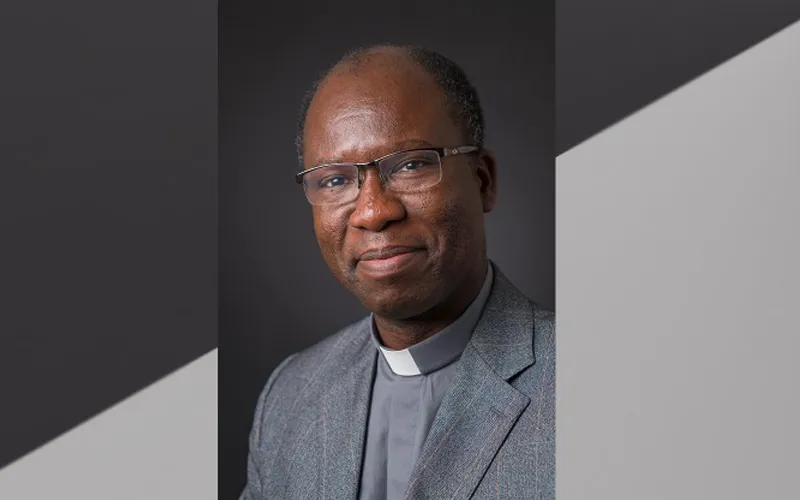He also stresses the importance of paying attention to the way the members of various Religious Orders and Societies of Apostolic Life in Africa are trained.
“If we do not invest in high-quality formation for our men and women, they might fail to deliver where they will be missioned to,” he says, and continues, “Because of such a failure, they might become problematic in our communities and works, and we might even see a growing number of mental health problems in our midst.”
The Cleric urges the people of God in Africa, especially members of Religious Institutes, to “dispel the darkness of mediocrity” by telling the beautiful stories that are happening on the continent.
“The new narrative will impact the new generations,” he reiterates, and adds, “The next three decades ahead of us will make Africa the home of the world youth. So, let the focus of minds and hearts be the emerging Africa in order to channel our peoples’ energy towards that.”
In the April 9 interview with ACI Africa, Fr. Béré observed that though Africa is presented with a myriad of political and economic challenges addressed by members of the Symposium of Episcopal Conferences of Africa and Madagascar (SECAM) in their Kampala Document (KD), there is need to turn the challenges into opportunities for future generations.
(Story continues below)
The Kampala Document is an outcome of the discussions that SECAM members had at the conclusion of their year-long Golden Jubilee celebrations whose launching in July 2018 and conclusion in July 2019) were hosted by the Uganda Episcopal Conference (UEC) in the Archdiocese of Kampala.
The 100-page document addresses a series of topics, among them the various challenges facing the people of God on the continent including economic and political challenges, socio-cultural challenges, ecological challenges as well as ethical challenges.
Other challenges addressed by the Catholic leaders in Africa and Madagascar revolve around modernization and capacity building.
Making reference to the document that was unveiled in January in Burkina Faso, Ghana, and South Africa, Fr. Béré says that the challenges facing Africa are related to politics and economy and that the Church has a role to play in improving the lives of the deprived in society.
“We will be judged on the impact of our mission on the economic and political life of our people,” the Jesuit Cleric told ACI Africa April 9, reiterating the message he delivered to the members of the association of Africans and Malagasy Servicing in Generalates (AMSG) last month.
The leadership of the association that brings together members of Religious Institutes from Africa and Madagascar who are living and working in Rome invited Fr. Béré to give them a talk on the topic, “The chief challenges facing Africa from the last three decades into the next three ones.”
“It is our duty to ensure that, at the economic level, people are not hungry and thirsty, and that they do not wander around because they are strangers, without any piece of land to dwell in, to make their living, no place they can call home,” Fr. Béré AMSG representatives during his March 7 address.
At the political level, the Jesuit Priest explains, “The politics Jesus wants us to pay attention to, I submit, fosters freedom and dignity.”
He says, “The Lord does not tell us how to do it. He trusts that we are endowed with wisdom and intelligence, and that we can lead his sisters and brothers out of the land of servitude.”
He calls upon members of various Religious Orders in Africa and the Indian Ocean Island of Madagascar to examine their contribution to the wellbeing of the society.
He poses, “When we look at Africa today and what our respective institutes have done since they landed on the continent, we wonder what legacy have we left that transformed and enhanced peoples’ lives? Which actions have uplifted the little ones whom Jesus calls his sisters and brothers?”
According to the member of the Anglican-Roman Catholic International Commission (ARCIC), Religious Institutes have facilitated the accomplishment of many things in Africa and Madagascar. The biggest challenge, he says, is Africans themselves appreciating their successes.
“One of the chief challenges I see can be the creation of a new narrative, or better a new song,” Fr. Béré who has participated, as an expert, in several synods of Bishops says.
He adds, “We must ‘sing a new song.’ We must tell the stories of the blessings that the charisms of our respective institutes have brought to the continent.”
Agnes Aineah is a Kenyan journalist with a background in digital and newspaper reporting. She holds a Master of Arts in Digital Journalism from the Aga Khan University, Graduate School of Media and Communications and a Bachelor's Degree in Linguistics, Media and Communications from Kenya's Moi University. Agnes currently serves as a journalist for ACI Africa.








